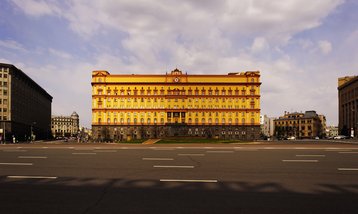The Federal Law No. 374-FZ dated July 6, 2016, “Concerning Amendment of Federal Law ‘Concerning the Combating of Terrorism’ and Certain Legislative Acts of the Russian Federation Regarding Establishment of Additional Measures to Combat Terrorism and Maintain Public Security” drawn up by Deputy Irina Yarovaya and Senator Victor Ozerov, introduces additional regulations covering the activities of Internet and telecom companies operating in Russia.
Starting from July 1, 2018, all communications service providers are obliged to store data on information interchange for up to 3 years, and for Internet companies – up to one year. Transferred information is to be stored for up to 6 months. Moreover, government agencies must be provided with information for decoding transferred data.
Background
The amendment package was enacted without discussing it with industry participants. To put it bluntly, the majority of the market players were certain that such amendments would never be adopted because these regulations are onerous to implement and because of the current difficult economic conditions. For these reasons, the business community did not invest any effort in getting its opinion across to legislators.
As of now, the main topic of discussion between the market players and the Government of the Russian Federation are the terms and conditions of storage and what is required to be stored. It seems that, at least at the first stage, a scenario is possible which would not require storage of media data. Such data accounts for up to 98 percent of total transmitted and received traffic. Under the harshest scenario, while storing all of mandatory multimedia content, market players would incur significant costs in bringing their infrastructure in line with the requirements of the amendments. The Big Four mobile operators estimate their costs at about 2.2 trillion Rubles.
The current version of the regulations has many “gaps” open for discussion before the Government of the Russian Federation amends it. As an example, one of these items may be the submission of key information for transferred data decoding: today, some of the technologies used do not provide operators with the keys.
The impact of the law on the IT industry
Companies subject to the law would have to modify their corporate traffic processing system architecture. Based on the current IT consumption model, some of the companies would build proprietary data centers for this task, others would rent commercial data center capacities and some would use cloud storage systems offered by specialized Storage-as-a-Service providers.
In terms of the engineering infrastructure of data centers, the supply of commercial DPCs may be regarded as adequate – there is likely to be enough capacity. Today in the metropolitan area, about 7 – 8 thousand server racks are available.
The role of government
The adopted amendment package does not have an explicit indication of the data storage location; it only stipulates that storage facilities must be located in Russian territory. That being said, attempts to secure budget funding by government enterprises cannot be ruled out. Over the last few years, for example, the government invested heavily into data center infrastructure development. However, it would be more advantageous not to monopolize the demand but to direct investments into the development of the commercial data center industry in Russia, which should be able to accommodate the requirements of the law amendments regarding provision of necessary infrastructure.
Potential benefits of the law
Implementation of the amendments required by the law is likely to benefit mainly foreign IT system manufacturers and distributors. Virtually all data storage equipment is produced abroad. If the total information storage scenario is considered, it must be said that Russia lacks the necessary server capacities to store the petabytes of data. It is all but impossible to develop domestic DSS manufacturing facilities by July 1, 2018. Very important here are joint efforts with partners who should be able to rapidly localize production in Russia and ensure the technology transfer.
Evgeny Gorokhov is Chief Operating Officer of the Stack Group.


